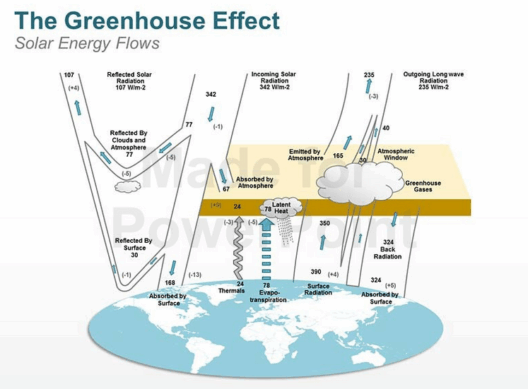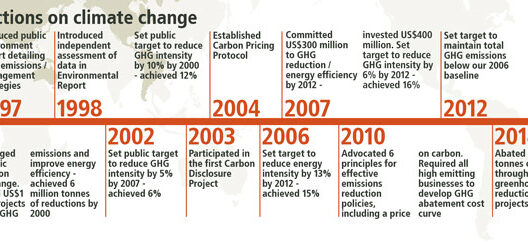The climate crisis is an urgent and complex issue that affects every facet of our lives. While it may seem overwhelming, individual actions can coalesce into a powerful movement for change. Each household possesses the potential to contribute meaningfully to the fight against climate change. By understanding the myriad ways you can make a difference, you can help foster a sustainable future.
Here are several impactful strategies to consider.
Making Conscious Consumption Choices
One of the foremost actions individuals can take to mitigate their carbon footprint lies in their purchasing habits. Choosing local and seasonal products not only supports the local economy but also reduces the carbon emissions associated with transportation. Consider visiting farmers’ markets or utilizing community-supported agriculture (CSA) programs to establish a more direct link between consumers and producers.
Furthermore, cultivating a sense of minimalism can significantly decrease environmental strain. This involves prioritizing quality over quantity; opting for durable, sustainably-produced goods transcends superficial consumption. Emphasizing multifunctional items can also alleviate clutter and minimize waste. For instance, choosing reusable kitchenware over disposable options can drastically reduce single-use plastics that often end up in landfills.
Moreover, practicing mindful consumption encourages individuals to assess the lifecycle of products. Delving into the environmental practices of brands reveals which companies prioritize sustainability. Supporting those that adopt eco-friendly policies can drive extensive systemic change across industries.
Energy Efficiency at Home
Another vital dimension in combating climate change is enhancing energy efficiency within the household. Small adjustments can yield substantial benefits. For example, switching to LED lighting can consume up to 75% less energy than traditional incandescent bulbs, thereby diminishing your electricity bill as well as your environmental impact.
Home insulation is equally crucial. Ensuring adequate insulation in attics and walls reduces heating and cooling requirements, ultimately safeguarding both energy and financial resources. Similarly, investing in energy-efficient appliances is a prudent choice that can lead to significant long-term savings, whilst contributing to an overall decrease in energy demand.
Moreover, consider integrating renewable energy sources, such as solar panels, into your home. Although initial costs might be higher, the long-term benefits include lower energy bills and reduced reliance on fossil fuels. Many states offer incentives and tax breaks for homeowners who invest in renewable energy technologies, making it an even more viable option.
Transportation Innovations
The transportation sector is a major contributor to greenhouse gas emissions, emphasizing the need for more sustainable practices. Opting for public transportation, biking, or walking not only reduces your carbon footprint but also promotes healthier lifestyles. Such practices can even alleviate urban traffic congestion, demonstrating the multifaceted benefits of alternative modes of transport.
If you must rely on a vehicle, consider downsizing to a more fuel-efficient model or, even better, an electric vehicle (EV). EVs operate with significantly lower emissions than their gasoline counterparts, further mitigating air pollution and fossil fuel dependence. In the current era, a plethora of charging options makes EV ownership increasingly accessible.
Additionally, carpooling or ride-sharing can drastically cut emissions per individual, while simultaneously fostering a sense of community among participants. Every trip taken can be shared to maximize efficiency and reduce the overall number of vehicles on the road.
Water Conservation Techniques
The often-overlooked water crisis is inextricably linked to climate change. Conserving water can lessen the energy required for pumping, treating, and heating water, ultimately contributing to decreased greenhouse gas emissions. Simple yet effective adjustments, such as fixing leaks, installing low-flow fixtures, and being mindful of water usage during daily activities, can significantly conserve this precious resource.
Moreover, implementing xeriscaping—designing landscapes to reduce or eliminate the need for irrigation—can contribute to sustainable gardening practices. Opting for native plants that require less water not only reduces maintenance but also bolsters local biodiversity.
Advocacy and Education
Beyond individual actions, collective advocacy plays a pivotal role in enacting systemic change. Engaging with local organizations that focus on climate action fosters a sense of community and amplifies your efforts. Participating in town hall meetings or environmental debates provides a platform to voice concerns and influence local policy decisions.
Furthermore, educating others about climate change can have a far-reaching impact. Hosting workshops, sharing informative content online, or engaging friends and family in discussions about sustainable practices can catalyze change within your community. Awareness breeds action, and the more people understand the gravity of climate issues, the more likely they are to engage in eco-friendly practices.
In Conclusion: Everyone Has a Role to Play
Ultimately, combating climate change is a collective endeavor, necessitating the commitment of individuals, households, and communities. By adopting sustainable consumption habits, advancing energy efficiency, innovating transportation methods, preserving water, and advocating for systemic change, each person can contribute to a healthier planet. Taking strides towards responsible living fosters resilience against climate adversity and promotes a sustainable future for generations to come. Embrace the power of individual action to combat a global crisis—your efforts matter.







